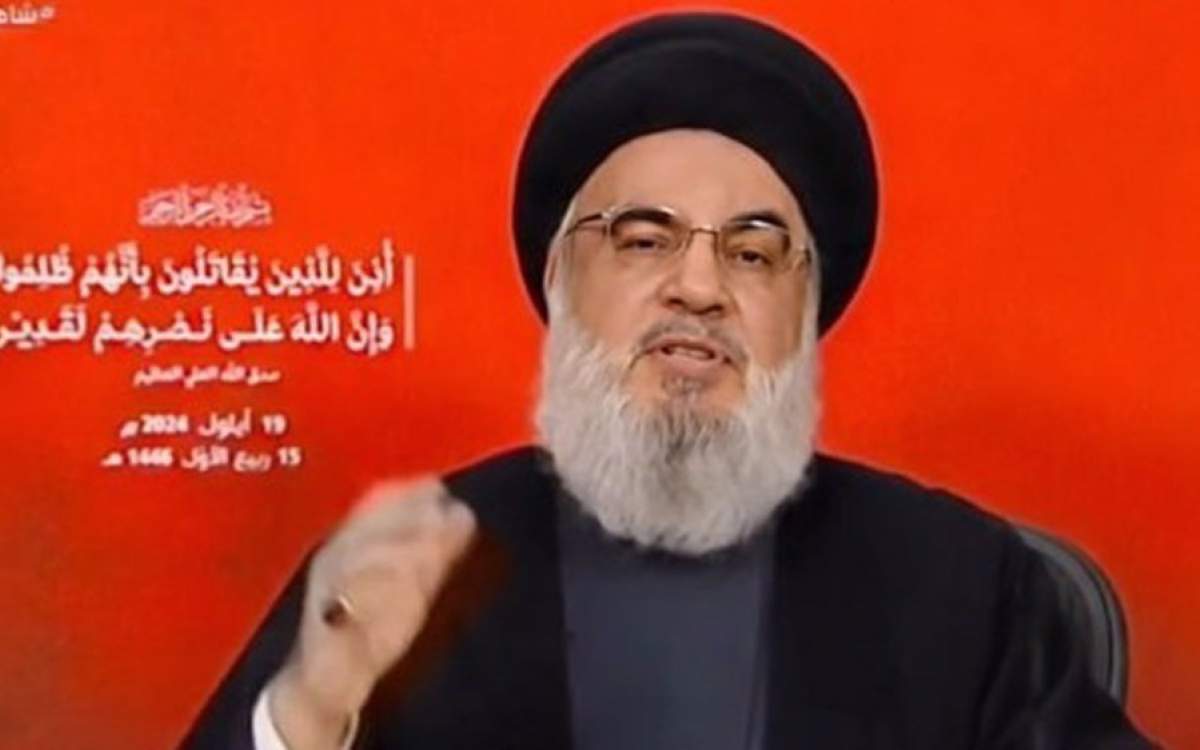The Iran Project
: Hezbollah Secretary General Sayyed Hassan Nasrallah says pager and walkie-talkie explosions by Israel on Tuesday and Wednesday which killed 37 people and wounded nearly 3,000 in Lebanon are a declaration of war.
Friday 20 September 2024 - 22:00
Story Code : 428451
Source : Press TV
Nasrallah: Blasts declaration of war, enemy to face tough retribution
"The Tuesday and Wednesday massacres are a war crime, a declaration of war...you can call it anything," he said, adding Israel will face "tough retribution and just punishment, where it expects it and where it does not".
Israel’s willful intent, Nasrallah said, was to kill 4,000 Lebanese people within minutes but many of the pagers were out of service, turned off or stored away.
"When the enemy planned out this attack, they assumed there were at least 4,000 pagers spread out across all of Lebanon. This means that the enemy had the intention of murdering 4,000 people in a single minute.
"The same was repeated on the second day with the aim being to kill thousands of people carrying radio devices," Nasrallah said.
Some of the attacks, he said, took place in hospitals, pharmacies, marketplaces, commercial shops and even residential homes, private vehicles and public roads where thousands of civilians, including women and children, are present.
Nasrallah said an extensive investigative committee has been formed to study all scenarios, possibilities, and theories, and an almost-definitive conclusion reached.
"I can tell you with utmost certainty that this attack did not break us and will not break us. On the contrary, it will only increase our resolve and determination to continue on in this battle," he said.
Nasrallah said the aim of the attack is to dissuade the Lebanese resistance from continuing its operations against Israel in solidarity with the Palestinians.
Since October 7 when Hamas carried out the landmark Operation Al-Aqsa Storm inside Israeli occupied territories, Hezbollah has engaged in near-daily cross-border skirmishes with Israeli forces in a show of solidarity with Palestinians in Gaza.
"Why did the enemy do this? When the blessed Al-Aqsa Flood began, the Southern Lebanese support front was opened. This front has inflicted huge losses upon the enemy since October 8, as they have repeatedly admitted themselves," Nasrallah said.
"The Southern Lebanese front has been a very effective front alongside the other support fronts. The enemy has repeatedly sent us messages to close this front. They resorted to threats of war, and attempted to differentiate between Lebanon and Gaza."
Nasrallah said after the first attack on Tuesday afternoon, "the enemy sent us a message through official and unofficial channels, threatening that if we do not close our front, they have more in store for us and so the attack on Wednesday came".
"In the name of the martyrs, the wounded, the ones who lost their eyes and palms, and in the name of every person who has taken on the responsibility of supporting Gaza, we tell Netanyahu and Gallant: the Lebanese front will not stop until the war on Gaza ends," he said, referring to Israeli prime minister Benjamin Netanyahu and minister of military affairs Yoav Gallant.
Through the attack, Nasrallah said, the enemy wanted the Lebanese people to turn against the resistance.
"This goal failed on Tuesday and Wednesday when we all saw the stances of the people and the wounded who hope to recover to return to the battlefield," he said.
Nasrallah thanked doctors, officials and everyone who helped in the treatment of victims of the attacks, including the people who donated blood.
"One of the silver linings of the crisis of the past few days is the solidarity and unity experienced across the country," he said.
Reporter : Editorial of The Iran Project
# Tags











